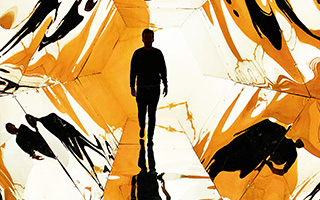As we navigate our way through the COVID-19 pandemic and this turbulent year, the question becomes ever so critical.
On one hand, resources that keep our sector functioning are rapidly shrinking, with several museums around the world closing, not knowing if they will reopen. On the other hand, there is clear evidence that museums are among the most important public institutions, and that people place great value on heritage collections.
From ICCROM’s perspective, there is a need for the museum sector to reposition itself, and take concrete and bold steps to advance social, environmental and economic sustainability ― in light of the pandemic but also other recent global events. Museums and their collections constitute one of the most powerful platforms for communities to meet, share and mediate ideas. They can contribute to social cohesion, climate action, creative industries, and personal and collective well-being.
However, if museums do not demonstrate their full potential as agents of change and catalysts for development, they run the risk of being perceived as non-essential. This of course means being de-prioritized when it comes to receiving financial support for sustaining operations. Cultural heritage risks being one of the first casualties of funding cuts, unless we pivot and face the realities of our world.
I often hear professionals say that our work is not political. ICCROM itself strives for neutrality, however the truth is that all of us make political decisions all of the time. The idea that museum professionals and the cultural heritage discipline are apolitical, is myopic. If we are to stay afloat, politicians must see the importance of museums to communities. How will they see this importance? If the relevance of museums to society is correlated with votes. We cannot continue to pretend that we are innocent. Instead, we must contribute to political life and the well-being, stability and resilience of political constituents.
Within this, I also wish to highlight the fundamental role of conservation as an enabler of sustainable development. Conservation ensures that our museum collections remain in good shape and readily accessible for meaningful use over time. Conservation is also critical to informing our understanding of collections.
Through its worldwide mandate, ICCROM is committed to promoting the conservation and sustainable use of museum collections for present and future generations. I emphasize the present, because I think first and foremost the present generation must benefit. We also commit ourselves to the UNESCO Recommendation concerning the Protection and Promotion of Museums and Collections.
With COVID-19, it is important to reflect on the definition of museums, and on the role of collections. It’s no longer business as usual.
There were certain events in the world that perhaps were not connected with the pandemic, but happened, and call for serious reflection in our practice. Here, I’m talking about Black Lives Matter, not simply because I am Black, but because I think it has specific and serious implications on the definition and future of museums.
How much do our collections and exhibitions reflect on other groups and their heritage? Already, the statues that have been taken down from public places are being moved to our museums. How do we deal with them? What about museum collections ― will they be next? Do they reflect—do they represent—our communities and what we want to be? Which communities are our collections serving and who defines that?
We are not just here to look after old things. The old things are significant to our daily lives and to our future.
For this reason, and in line with the UN 2030 Agenda for Sustainable Development, and together with UNESCO, we call upon our Member States and their heritage authorities to support museums effectively in this challenging moment. This includes not only immediate aid to ensure business continuity, but also making a genuine commitment to providing the necessary means and environment for all museums to spearhead societal change, which are so critical for us to survive in the post-COVID world.
Webber Ndoro
Director-General

